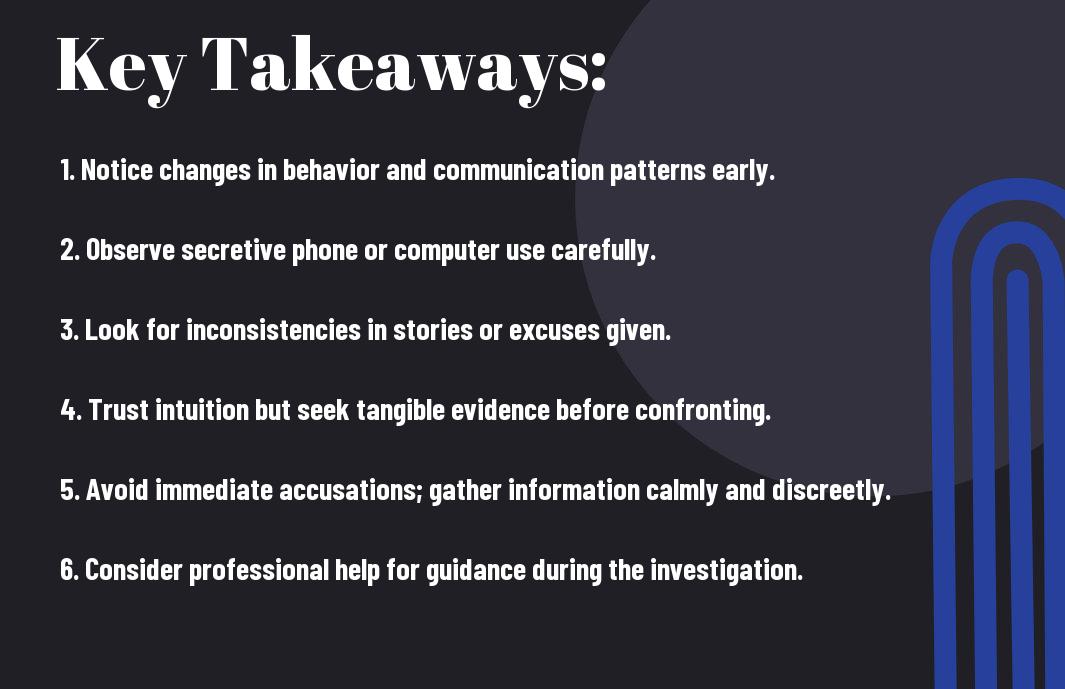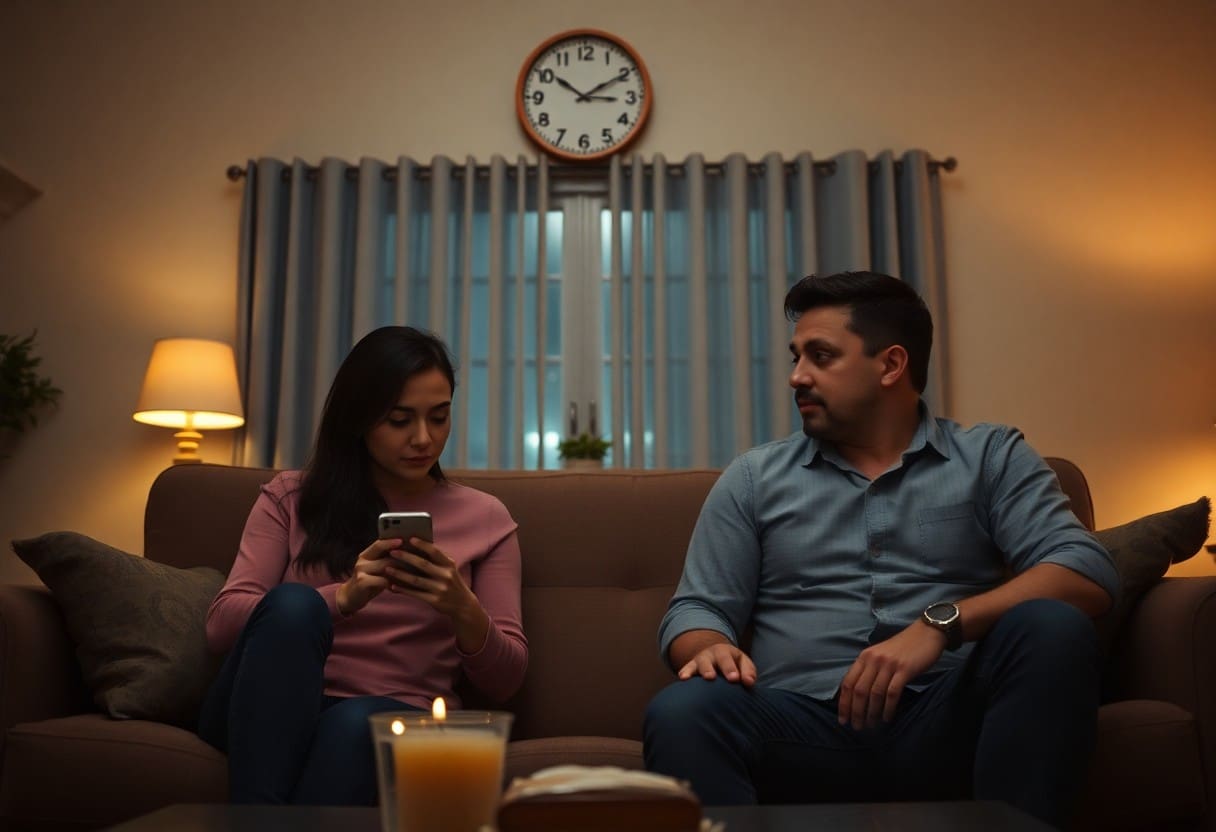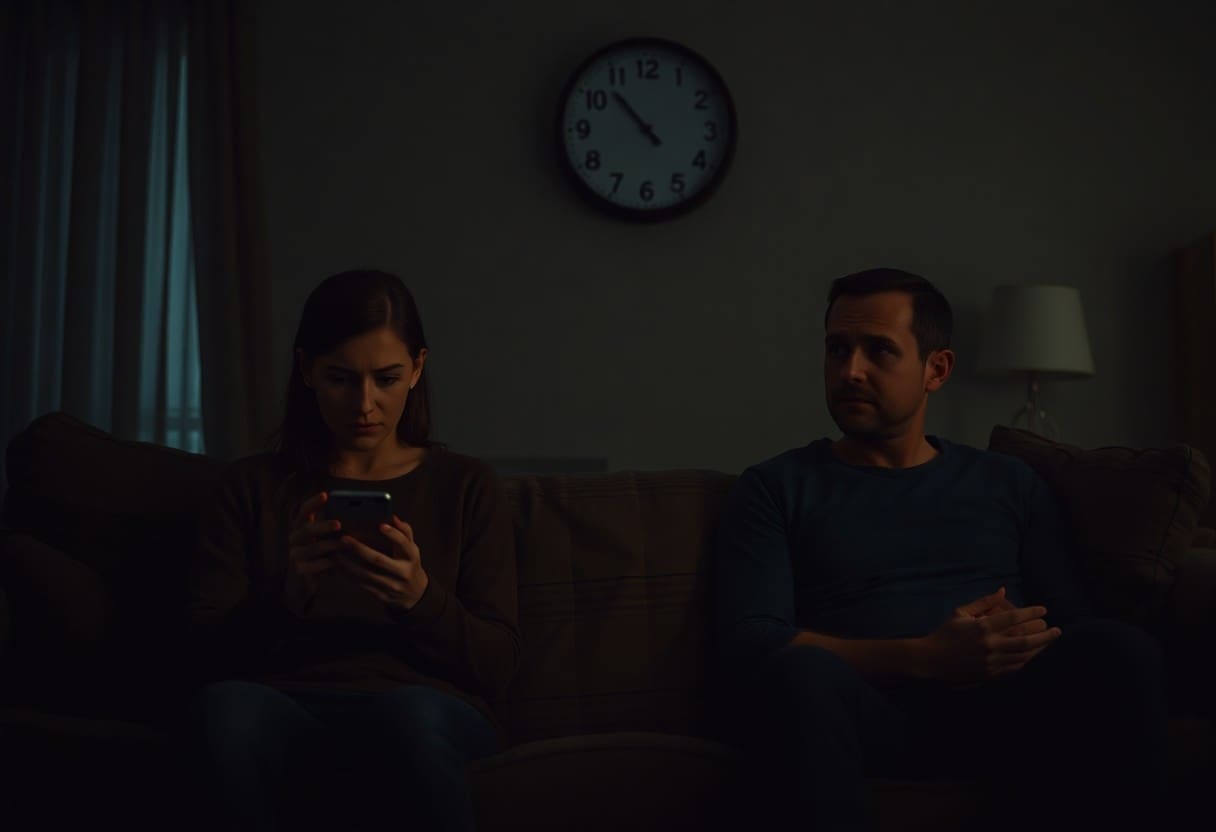There’s no denying that suspicion can create a whirlwind of emotions when it comes to your relationship. If you find yourself questioning your partner’s fidelity, it’s imperative to approach the situation thoughtfully and strategically. In this post, you’ll learn the first steps to take in investigating a potentially unfaithful partner, helping you navigate this difficult time with clarity and purpose. Consult with Digital Forensic Squad to ascertain whether your suspicions require further investigations,
Key Takeaways:
- Observe behavioral changes: Pay attention to any sudden shifts in your partner’s routine or emotional state, as these might indicate underlying issues that warrant further exploration.
- Communicate openly: Engage in honest conversations with your partner, expressing your concerns without accusations, to foster a safe space for dialogue.
- Gather evidence discreetly: If suspicion persists, consider documenting specific instances or discrepancies that can provide clarity without jumping to conclusions.
Understanding the Signs of Infidelity
Before you jump to conclusions, it’s crucial to identify the signs that may indicate infidelity. Understanding these signs can help you approach the situation more thoughtfully. Look for behavioral changes, emotional distance, and communication shifts which could all be red flags in your partner’s actions. By being observant and gathering information, you can better assess the situation.
Common Behavioral Changes
Before addressing your partner, take note of any sudden changes in their behavior. If they are secretive about their phone or suddenly more concerned with their appearance, these may be indicative of something brewing beneath the surface. Additionally, changes in routine, such as late nights at work or unexplained absences, can also serve as warning signs that warrant further investigation.
Emotional Distance and Communication Shifts
Distance can often be felt in the way your partner communicates with you. If you notice a lack of intimacy or they seem less engaged in conversations, it’s important to take these changes seriously. A sudden shift in emotions, where your partner becomes defensive or withdrawn, might suggest that they are preoccupied with something, possibly an affair.
A lack of emotional connection can manifest in various ways, such as reduced affection or a decline in shared interests. You may find that your partner is more irritable or dismissive during conversations, neglecting your feelings and distracting themselves from genuine connection. These changes can be symptomatic of an underlying issue, possibly infidelity, and warrant a thoughtful exploration of your relationship’s dynamics.

Gathering Evidence: Investigating a potentially unfaithful partner
While doubt can cloud your judgment, collecting concrete evidence is necessary in understanding the truth about your partner’s fidelity. Your approach should be systematic and objective, allowing you to piece together information without personal biases. Focus on maintaining your emotional control as you monitor behavior patterns and signs, providing you with a clearer perspective on the situation at hand.
Observational Techniques
With careful observation, you can begin to track any unusual behaviors or patterns in your partner’s daily routine. Pay attention to changes in their communication, including how often they engage with you versus others, and look for inconsistencies that might raise your suspicions. Subtle alterations, like a shift in their schedule or a sudden need for privacy, can help you gauge the depths of your concerns.
Utilizing Technology and Social Media
About leveraging technology, you can gather insights through various digital channels, including social media platforms and messaging apps. Monitor your partner’s online presence and interactions to identify any potential red flags. Consider whether they have altered their privacy settings or suddenly become secretive about their devices, as these can be indicators of hidden behavior.
At a time when technology connects us more than ever, it’s necessary to use these resources wisely. Investigate your partner’s social media accounts for any suspicious activity, such as new friendships or flirtatious messages. Be cautious about how you approach this, as snooping can backfire. Instead, aim to uncover relevant information discreetly, ensuring that you retain a level of respect for both your partner and your relationship while seeking the truth.
The Role of Intuition
Now, when you sense something is off in your relationship, your intuition plays a vital role. Often, your gut feelings arise from subtle cues and changes in your partner’s behavior. It’s important to take these feelings seriously, as they may lead you to uncover the truth. For effective steps in addressing your concerns, consider reading about the 7 things to do if you think your partner is cheating.
Trusting Your Instincts
Trusting your instincts is important when navigating the complexities of potential infidelity. Your intuition often picks up on subtle changes in your partner’s demeanor or behavior that may not be immediately obvious. Acknowledge these feelings, but approach them with a balanced perspective; your instincts can guide you toward uncovering the truth while providing insights into your partner’s activities.
Differentiating Between Paranoia and Valid Concerns
On the other hand, it’s crucial to differentiate between paranoia and valid concerns that arise from your instincts. Emotional triggers can sometimes lead to overreactions, causing you to perceive threats that may not exist. Scrutinizing your feelings helps you assess whether your concerns arise from genuine changes in behavior or are rooted in past experiences and insecurities.
To effectively differentiate between paranoia and valid concerns, take a step back to evaluate the evidence surrounding your situation. Consider specific instances of behavior that provoke doubt, and reflect on whether they align with past patterns. Engaging in open communication with your partner can also clarify misunderstandings and provide reassurance, helping you navigate your feelings with greater clarity.

Approaching the Conversation
Many couples dread the thought of discussing infidelity, yet addressing your concerns directly can foster openness. It’s vital to choose your words carefully and create a safe environment for dialogue. Approaching the conversation calmly and with genuine curiosity can lead to valuable insights into your partner’s behavior and feelings. The goal is not to accuse but to express your worries and seek clarity in your relationship.
Timing and Setting
At the right moment, your conversation becomes much more productive. Choose a time when both of you are free from distractions, allowing for an honest and focused discussion. A private, comfortable setting can help ease tension and encourage open communication, so consider locations where you both feel at ease.
Framing Your Concerns
Timing is crucial when bringing up your concerns. Approach the topic with compassion, framing your thoughts around feelings rather than accusations. This invites your partner to engage in a constructive dialogue, promoting understanding rather than defensiveness.
Due to the sensitive nature of infidelity discussions, framing your concerns in a non-confrontational manner can significantly affect the outcome. Express your feelings using “I” statements, such as “I feel uneasy when…” This approach helps convey your emotions without placing direct blame, thus fostering a more open exchange. This method allows your partner to consider their actions and feelings without feeling attacked, encouraging a healthier conversation trajectory.
Seeking Professional Help
Keep in mind that seeking professional help can provide a safe space to explore your feelings and concerns. A qualified therapist can assist in navigating the complexities of trust and communication in your relationship. Engaging in counseling might not only clarify your thoughts but also guide you in making informed decisions about your partnership.
The Benefits of Couples Counseling
About couples counseling: it offers a structured environment for both partners to voice their feelings and fears. This therapeutic setting can facilitate open communication and help you understand each other’s perspectives, ultimately fostering healing and reconciliation if both parties are willing to work through the issues together.
Finding the Right Therapist
Across different communities, finding the right therapist who specializes in relationship issues is important. You should look for someone experienced in addressing infidelity and the emotions surrounding it, ensuring they align with your goals and comfort levels. The right fit can greatly enhance the counseling experience, making it more effective and supportive.
In fact, when searching for the right therapist, consider factors such as their qualifications, experience level, and communication style. Reading reviews or seeking recommendations can also provide insight into their approach. It’s important to meet potential therapists beforehand to gauge your comfort and trust in their guidance. Connecting with a professional who understands your unique circumstances is vital for the healing process.
Moving Forward
Once again, you’ve had the opportunity to reflect on your relationship and the signs that may suggest infidelity. As you take the next steps, prioritize open communication and honesty with your partner. This journey can be challenging, but establishing trust and understanding is crucial for both of you to move forward, regardless of the outcome.
Evaluating Your Relationship
Relationship dynamics can change over time, and it’s important to assess whether the issues you’re facing are part of a larger pattern or an isolated incident. Take a step back and evaluate your mutual goals, shared values, and emotional connections, as this will guide your next steps.
Making Informed Decisions
Across this process, it’s vital to gather information that will help you make informed decisions about your relationship. Approach discussions with your partner acknowledging the feelings and concerns of both parties, and don’t shy away from seeking external support if necessary.
Further, consider all available options before deciding on the direction of your relationship. Weigh the pros and cons of staying together versus parting ways. This decision should reflect your emotional well-being and personal values. Consulting with trusted friends or therapists can also provide clarity and insight that might help you navigate this challenging situation.
Conclusion
To wrap up, when suspicion strikes regarding a potentially unfaithful partner, the first steps you take are vital in navigating your feelings and gathering information. Focus on observing behaviors and communication patterns without jumping to conclusions. Trust your instincts while remaining open to various possibilities. Ultimately, clear communication with your partner will help clarify the situation and guide you in making informed decisions. By approaching the matter thoughtfully, you can protect your emotional well-being and seek the truth you deserve. For more detailed strategies, you can refer to this guide on How to Catch Your Cheating Spouse: 13 Legal Ways.
Q: What are some common signs that may indicate my partner is being unfaithful?
A: There are several behaviors that can raise suspicion about a partner’s fidelity. These signs can vary widely, but some common indicators include a sudden change in schedule, increased secretiveness with their phone or computer, emotional distance or withdrawal, and changes in intimacy levels. Additionally, a partner may become defensive or evasive when questioned about their activities or relationships. If you notice a combination of these signs, it may warrant a closer examination of the situation.
Q: What steps can I take to investigate my suspicions without invading privacy?
A: Investigating your suspicions requires a delicate balance between seeking clarity and respecting your partner’s privacy. Start by observing any patterns in their behavior or changes in daily routines. Look for inconsistencies in their stories or interactions with others without overstepping boundaries. Journaling your observations may help you identify any recurring themes. If you find that your concerns persist, consider seeking support from a therapist or a counselor to navigate your feelings and the situation effectively.

